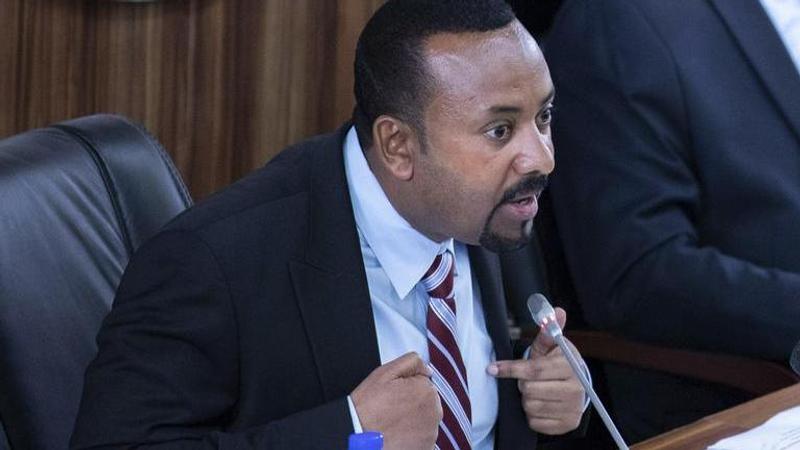Published 09:21 IST, November 28th 2020
Ethiopian PM Abiy Ahmed rejects Tigray conflict talks in African Union meeting
The Nobel Peace Prize-winning prime minister, during his meeting with special envoys of the African Union, ruled out prospects of dialogue with Tigray rebels.

Ethiopian Prime Minister Abiy Ahmed on Friday again declined the proposal to hold talks with rebel leaders of the Tigray region. The Nobel Peace Prize-winning prime minister, during his meeting with special envoys of the African Union, ruled out prospects of dialogue with Tigray rebels but said he willing to meet representatives "operating legally" in the region. Ahmed had earlier rejected talks proposed by the African Union representatives, saying he does not "negotiate with criminals".
This comes amid the military offensive launched by the federal forces in the Tigray region, which have so far managed to capture several key towns surrounding the capital Mekele. Prime Minister Ahmed had given 72 hours to the rebel forces of the heavily armed Tigray People's Liberation Front (TPLF) party to surrender before a final offensive is launched. His government had also warned the people residing in Mekele to distance themselves from the TPLF or else they would face the consequences too.
The fighting has triggered a refugee crisis in the region as close to 40,000 people have already fled to neighbouring Sudan. The refugee crisis has also worried international humanitarian groups, who fear that it would worsen the COVID-19 pandemic in the region as camps where displaced people are being kept are ill-equipped. The number of casualties in the Tigray region remains under the clouds because of little-to-no outside access, while some estimates suggest it to be well over a thousand.
Tigray conflict
The immediate conflict in the region was sparked after the ruling TPLF party, a minority party at the centre but a strong and powerful group in the region, allegedly attacked a military base of the federal forces on November 4 following which Ahmed's government launched a military offensive.
Relations between TPLF and the government of Prime Minister Abiy Ahmed had started straining after the latter announced reforms to end ethnic federalism in the country. Ahmed dissolved the Ethiopian People's Revolutionary Democratic Front, which had ruled the country for 30 years, and created a new Prosperity Party by merging all regional parties. The creation of the Prosperity Party meant a reduction of TPLF's influence at the federal level, which prompted the powerful regional organisation to refuse to join the party.
The relations took a drastic hit after the TPLF party held parliamentary elections in September despite the central government's decision to postpone all polls in the country due to COVID-19 concerns.
(Inputs and Image: AP)
Updated 09:21 IST, November 28th 2020




